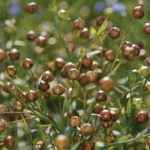Malt buyers have been slow to accept new varieties and that’s starting to have a big effect on growers. Yields are lagging, profits are falling and other crops are starting to look more attractive to growers. Jill McDonald of SaskBarley wants to see that change. She says varieties need to keep up with the times,








